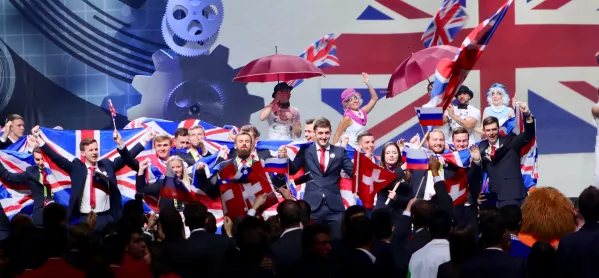Team UK is aiming for a spot in the top 10 at this week’s EuroSkills competitions, according to the chief executive of WorldSkills UK.
Achieving that result in the medal table would match the results of EuroSkills in Gothenburg 2016, where the UK came 9th and secured a record medal haul, and last year’s WorldSkills in Abu Dhabi, where the country came 10th.
More than 500 competitors from 28 countries will this week go head to head to secure medals in 37 skills - with 22 young people representing the UK.
“We are gunning for a top-10 position. That is what we have been training them to achieve,” said WorldSkills UK chief executive Neil Bentley. “The challenge with that is that we don’t know how the competition is going to do.”
Significant investment
According to Dr Bentley, who was speaking with Tes in Budapest on the first day of EuroSkills, the standards at Europe’s most prestigious skills contest have increased significantly.
He said: “We are in a competition where standards are progressing and are getting higher and more challenging.
“Other countries are taking this a lot more seriously than they have in the past,” he added, explaining that Russia, in particular, was investing heavily, with the country due to host both WorldSkills and EuroSkills in the coming years.
“Everyone is investing more and we need to look at ourselves in terms of what we do with our investment,” said Dr Bentley; achieving the desired position in the medal table was therefore important to show a return on the investment made.
But he added: “We also need to recognise that others invest more. So in the resource-constrained world we are in, how do we make sure we are not left behind?”
Learning lessons
In addition to using the final position in the medal table as an indicator, Dr Bentley said that it was also important to “understand why and learn the lessons out of that. We need to look at a research base that helps us to understand what we are doing and what other countries are doing.”
EuroSkills Budapest 2018 was an important opportunity for his organisation to speak with counterparts around Europe about the challenges facing the region, according the WorldSkills UK boss. “You get a real sense of how others are doing.” he said. “They are building up their capacity to do better - everyone is under pressure to do better.”
Dr Bentley added: “Everyone is asking about Brexit and what it will mean for us. From a Brexit perspective, the skills agenda should be at the heart of everything. So we have to make sure we have the skills investors need. And our job at WorldSkills is to make sure we support that agenda. We need to keep pace with economic development and competitions need to be relevant to future economic need, not just current need.”




